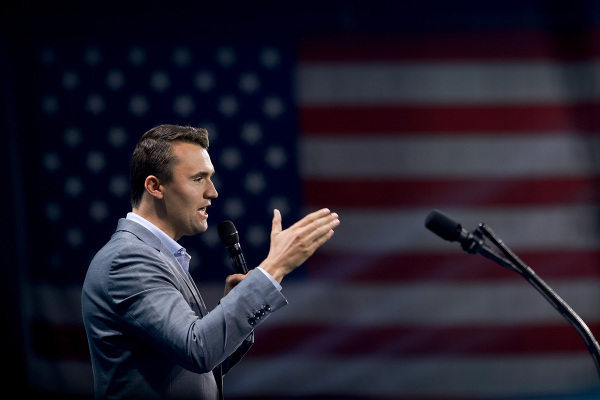Angela Codevilla, Christian philosopher who predicted failures of American political and foreign policy elite, dies

One of our country’s greatest public intellectuals, Angelo Codevilla, died on Monday night. Codevilla was one of the few remaining titans of statecraft, and among the most insightful and powerful analysts of American politics and culture. Aside from his years in service to the country and teaching international relations, he was a prolific writer and analyst, defining a truly conservative foreign policy. He was nearly a decade ahead of the curve on the failures of our ruling class. Somehow, he also found time to produce a translation of Machiavelli’s The Prince.
I don’t want to give the wrong impression: I did not know him personally, and I am wholly inadequate for the task of eulogizing a man I never even spoke to – though I do have a vague memory of him being courteous enough to respond to my emails in 2013, when I would have been 16. My father, however, did know him, and interviewed him, and prayed with him. Around that time, he pointed me in the direction of one of Codevilla’s many books about international politics and the history of American foreign policy, as a kind of gentle nudge to move on from my World War II obsession towards what would end up being the basis for most of my writing – international politics.
By 2013, the international relations establishment had been thoroughly penetrated by the philosophy of neoliberal internationalism, expressed in the impenetrable language of academia that we are all now intimately familiar with. I encountered terms like “post-modernism,” "neoliberalims," and “critical theory” for the first time in international relations publications. Codevilla showed another way, a philosophy of nations and their relations to one another that was uniquely Christian.
Today, we tend to see foreign policy as a choice between two poles: on one side, “isolationism,” the supposed refusal to use force in virtually any scenario; on the other, “interventionism,” the modus operandi of Clinton, Bush, and Obama. Codevilla showed us that was an illusion, a false dichotomy that paints any opposition to the latter as being a variant of the former, and vice versa.
Codevilla’s foreign policy put national interest at the center. It did not fall into the trap of neoconservatism and liberal internationalism, which see America’s role in the world as promoting democracy and/or human rights in distant lands. Nor did it fall into the trap of isolationism, which opposes military action in virtually every scenario, regardless of national interest. Writing about Iraq and Afghanistan, he urged us “to leave others’ business to them, while doing a better job minding our own.” Given the recent collapse in Afghanistan, caused by the utter incompetence of our elites, it would be hard to contend his point. Following the biblical standard of self-determination of nations and the doomed nature of empires, Codevilla opposed the neo-imperialism of the Bush-Obama era. (And the Wilson era, at that.)
He is probably best known for his prescient critiques of the ruling class, which informed his criticism of the foreign policy establishment. In an essay which then became the basis of a book, Codevilla laid out just how unelite our so-called “elites” really are. That was in 2010, 6 years before the election of Trump. In the aforementioned interview, Codevilla analogized the coming populist wave to an ill-treated horse: “This country, this wonderful horse of ours, has had a bunch of bad riders and the horse is gonna buck. May the next rider be worthy of the horse.”
Contrasting many of the recently-populist pundits of today, Codevilla was detailed and consistent in his critiques of the ruling class, while simultaneously warning about what might replace them. Despite his scathing critiques of the elites and long history of defending conservatives in fly-over country, Codevilla did not hop on the Trump train, criticizing the president despite enormous pressures not to – a principled stance which is still earning him vitriol even after his death. But, unlike many other conservatives who were critical of Trump, he did not abandon his principles for a job at MSNBC or CNN.
He dubbed the Democrats, as an institution of and for the elites, the “Court Party,” and the GOP the “Country Party.” This was at a time when the GOP was still seen as the party of Mitt Romney. As Michael Brendan Dougherty pointed out in his excellent obituary in National Review, Codevilla perceived what the actual political divisions in the country were back in 2009, when many thought the main dividing line was over how large the welfare state should be. Codevilla foresaw the problems the War in Iraq would face before it was launched, at a time when the vast majority of the country favored invasion. Again, neither falling into knee-jerk anti-war isolationism, nor the GI Joe foreign policy of the Bush years, he pointed out the foolishness of launching an invasion without a clear enemy, goal, and condition for victory. He made the same criticism over the then-popular war in Afghanistan.
Codevilla maintained his principles despite pressures to change, criticizing mistakes when they were made regardless of the cost to his prestige and public regard. He was, and is, attacked by both the failed “elites” and die-hard Trump supporters, but kept telling the truth just the same. He was vastly ahead of his time on foreign policy and the populist-elitist divide which defines modern U.S. politics. He was one of the few public intellectuals in the modern era who deserved the name. I did not know him personally, but his work was instrumental in the development of my writing and analysis of foreign affairs, and for that, I am in his debt. Right now, I’m sure many readers are pouring over his work, having their worldviews challenged and changed by the vast catalogue of his excellent writing, just as I did when I was 16.
Requiem aeternam dona eis Domine, et lux perpetua luceat eis.
Charles is a risk analyst and columnist at TownhallFinance. He has written for National Review Online, AsiaTimes, RealClearMarkets, and the Theopolis Institute. @charlesgbowyer





















